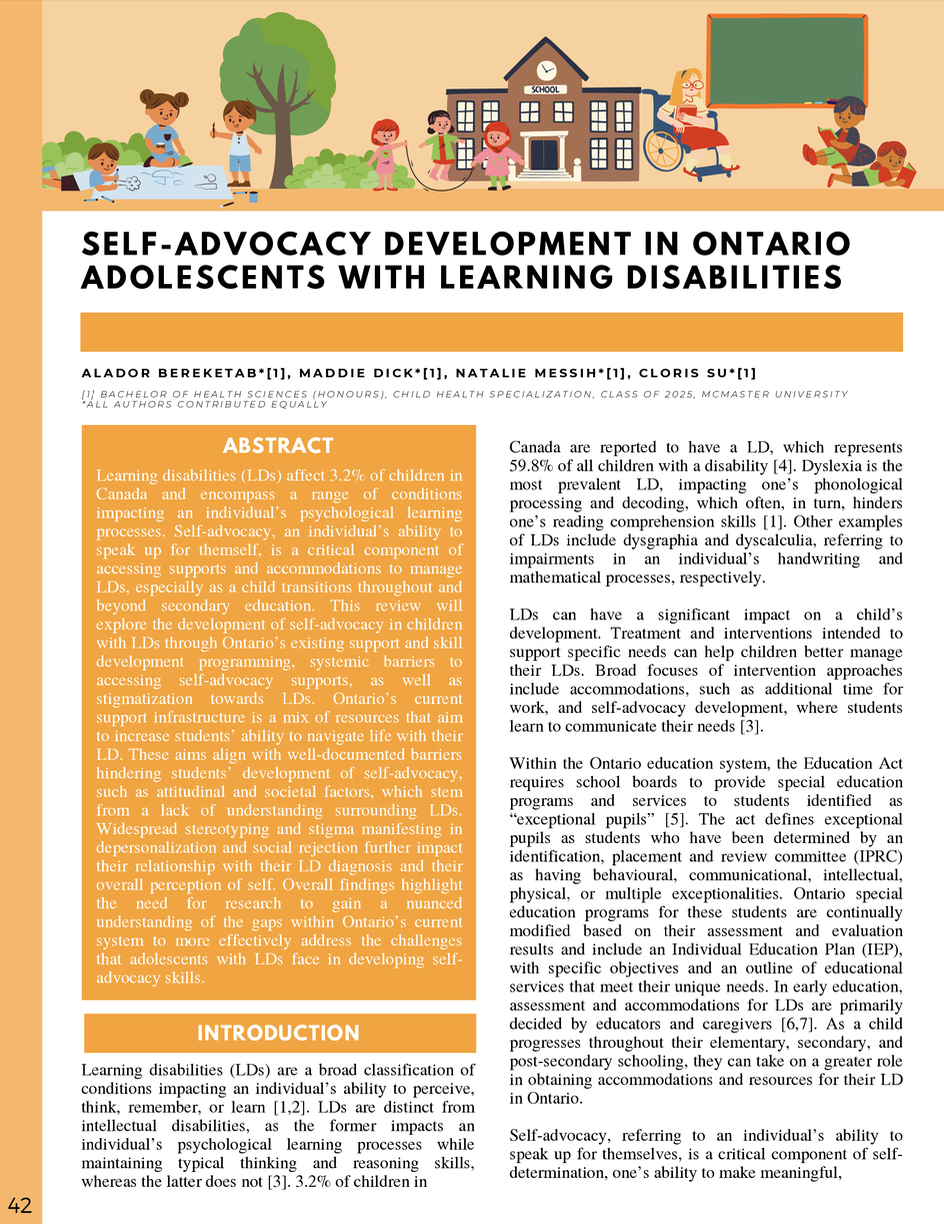Self-Advocacy Development in Ontario Adolescents with Learning Disabilities
DOI:
https://doi.org/10.15173/child.v3i1.3904Abstract
Learning disabilities (LDs) affect 3.2% of children in Canada and encompass a range of conditions impacting an individual’s psychological learning processes. Self-advocacy, an individual’s ability to speak up for themself, is a critical component of accessing supports and accommodations to manage LDs, especially as a child transitions throughout and beyond secondary education. This review will explore the development of self-advocacy in children with LDs through Ontario’s existing support and skill development programming, systemic barriers to accessing self-advocacy supports, as well as stigmatization towards LDs. Ontario’s current support infrastructure is a mix of resources that aim to increase students’ ability to navigate life with their LD. These aims align with well-documented barriers hindering students’ development of self-advocacy, such as attitudinal and societal factors, which stem from a lack of understanding surrounding LDs. Widespread stereotyping and stigma manifesting in depersonalization and social rejection further impact their relationship with their LD diagnosis and their overall perception of self. Overall findings highlight the need for research to gain a nuanced understanding of the gaps within Ontario’s current system to more effectively address the challenges that adolescents with LDs face in developing self-advocacy skills.

